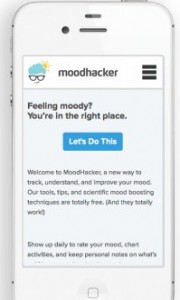FDA guidelines for mobile health apps relevant to cognitive/ mental health
 21 types of health apps the FDA could regulate but won’t (MobiHealthNews):
21 types of health apps the FDA could regulate but won’t (MobiHealthNews):
“The FDA final guidance finally published last week and it included very few surprises. One new section in the final guidelines — that was not included in the draft guidance — is a list of the types of apps that the FDA says will fall under its enforcement discretion. That means that these apps may meet the definition of a medical device, but the “FDA intends to exercise enforcement discretion for these mobile apps because they pose lower risk to the public…In the pages to follow is a roundup of the FDA’s list of apps that it does not intend to regulate even though they meed the definition of a medical device.”
 #1 Some Psychiatric Apps
#1 Some Psychiatric Apps
“According to the FDA’s guidance, some psychiatric apps might meet the definition of a mobile device, but it will choose not to regulate some of these apps: “Mobile apps that help patients with diagnosed psychiatric conditions (e.g., post-traumatic stress disorder (PTSD), depression, anxiety, obsessive compulsive disorder) maintain their behavioral coping skills by providing a ‘Skill of the Day’ behavioral technique or audio messages that the user can access when experiencing increased anxiety”
#8 Preventative screening apps from established medical sources
“Mobile apps that use patient characteristics such as age, sex, and behavioral risk factors to provide patient-specific screening, counseling and preventive recommendations from well-known and established authorities;”
#15 Tethered PHR apps
“Mobile apps that provide patients a portal into their own health information, such as access to information captured during a previous clinical visit or historical trending and comparison of vital signs (e.g., body temperature, heart rate, blood pressure, or respiratory rate);”
#21 Many fitness and wellness apps
“Mobile apps that are intended for individuals to log, record, track, evaluate, or make decisions or behavioral suggestions related to developing or maintaining general fitness, health or wellness,…”
–> Full article: 21 types of health apps the FDA could regulate but won’t (MobiHealthNews)
–> Read the FDA’s final guidance for mobile medical apps (PDF)


